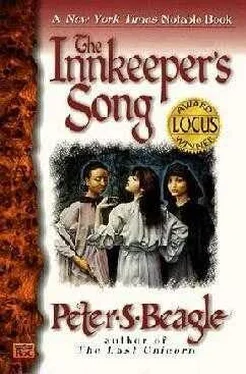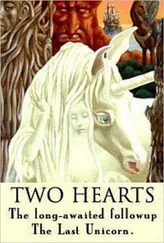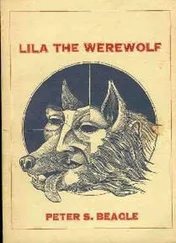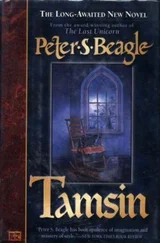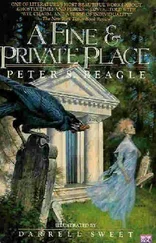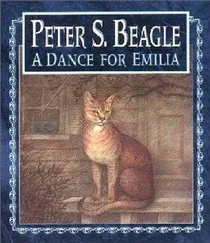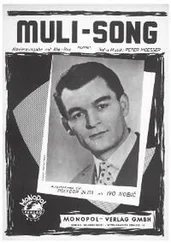Peter Beagle - Innkeeper's Song
Здесь есть возможность читать онлайн «Peter Beagle - Innkeeper's Song» весь текст электронной книги совершенно бесплатно (целиком полную версию без сокращений). В некоторых случаях можно слушать аудио, скачать через торрент в формате fb2 и присутствует краткое содержание. Год выпуска: 1993, ISBN: 1993, Издательство: ROC, Жанр: Фэнтези, на английском языке. Описание произведения, (предисловие) а так же отзывы посетителей доступны на портале библиотеки ЛибКат.
- Название:Innkeeper's Song
- Автор:
- Издательство:ROC
- Жанр:
- Год:1993
- ISBN:0-451-45288-7
- Рейтинг книги:5 / 5. Голосов: 1
-
Избранное:Добавить в избранное
- Отзывы:
-
Ваша оценка:
- 100
- 1
- 2
- 3
- 4
- 5
Innkeeper's Song: краткое содержание, описание и аннотация
Предлагаем к чтению аннотацию, описание, краткое содержание или предисловие (зависит от того, что написал сам автор книги «Innkeeper's Song»). Если вы не нашли необходимую информацию о книге — напишите в комментариях, мы постараемся отыскать её.
Innkeeper's Song — читать онлайн бесплатно полную книгу (весь текст) целиком
Ниже представлен текст книги, разбитый по страницам. Система сохранения места последней прочитанной страницы, позволяет с удобством читать онлайн бесплатно книгу «Innkeeper's Song», без необходимости каждый раз заново искать на чём Вы остановились. Поставьте закладку, и сможете в любой момент перейти на страницу, на которой закончили чтение.
Интервал:
Закладка:
Soukyan took the last step before the spring, and I did cry out to him, but Arshadin had already turned. One thick white hand gestured vaguely in Soukyan’s direction, and Soukyan fell to the floor. His mouth was open, but he could not breathe—you could see his eyes bulging, his chest straining, strangling there at Arshadin’s feet. He rolled from side to side, hands tearing at his throat, crazily trying to rip it open to let the air in. Arshadin looked down at him, nodding thoughtfully.
I started for Arshadin, but Karsh grabbed my arms so hard that I carried black bruises for days. Lal flew across the room like a thrown dagger, golden eyes slitted and cold. Arshadin glanced sideways at her, and she stopped dead still, staring wildly in all directions, half-cowering, half-challenging, throwing up her arms to ward off attackers none of us could see. She plainly recognized no one, not even Soukyan writhing on the floor. This part also goes on forever, but it is not like a dream.
Arshadin spoke. “It is over,” he said in that light, sexless, dreadfully placid voice. “There is a new master here.” Soukyan interrupted him with a frantic convulsion, first kicking out at Arshadin with all his fading strength, then trying to tangle their legs and drag him down. Arshadin stepped aside, and Soukyan’s effort trailed away into a feeble drumming of his heels, as mine had rattled on the wall when the blue-eyed assassin pinned me there by the throat. I couldn’t stand it. I managed to get an elbow into Karsh’s belly, and he grunted and let go of me. I went for Arshadin again.
He nodded to Lal, and she spun to intercept me, crouched and glaring. Arshadin pointed down, saying, “Take warning by him —” but he never finished, because it was just then that Lukassa and the griga’ath reappeared.
They came out of a fold in the air, a swift crumpling and smoothing that I glimpsed only for a moment as it parted for them. Lukassa was first, turning apparently to coax the griga’ath on through, and behind them… behind them in that moment was something I know I could not have seen. It was gray and big, and it saw me, too, and it could not have, and that is all I want to say. In my next breath, the gateway was shut and gone, and Soukyan’s fox was leaping to the floor, where it sat coolly on its haunches and watched Arshadin turn different colors. He made sounds, too, but they weren’t nearly as interesting.
What happened then happened so fast that I have to talk about it very carefully. Lukassa took two steps forward and collapsed, not into Tikat’s waiting arms, but into mine. She knocked me down, and her head bumped hard against my mouth, cutting my lip and loosening a tooth. The griga’ath shook itself, sneezed, and was the old wizard again—and if you wonder how I could be sure, his first act was to snap two words at Soukyan, who drew in breath for what seemed to me the first time in a hundred years, tried another, and sat up slowly, immediately reaching out to Lal. She pulled him to his feet, and for an instant they held each other. Then they both turned to look for Arshadin.
He was mad, of course—anyone who must be master is mad—but does that mean that his courage was all madness? I don’t think so, for my part. He faced the old wizard as boldly and contemptuously as ever, saying, “Here we are again, then. Where would you like me to send you next?” But his lips moved stiffly around the words, and his face looked like melting ice.
The old man looked immensely weary himself, but the smell of death and despair was gone from him. His green eyes were clearer than I had ever seen them, and bright as new leaves, and his laughter was spring water dancing up out of stone. He said, “Never mind about me, my poor Arshadin. Let us consider—and very quickly, too—a far enough place to ship you as you stand here. For nothing is ever over, and those whom you have failed do not understand failure.” Under the laughter, the voice was hard and urgent.
Lukassa stirred against me. I handed her to Tikat as gently as I could. Our eyes met briefly; then he bent his head and touched her hair. I looked away. Arshadin retorted, “I kept my bargain. If they were too weak to hold you , what shall they do with me? Nothing has changed.”
Behind me Karsh was muttering, “I’ll kill him. Let me just get my hands on him, I’ll kill him.” I thought he meant Arshadin; that he had realized who was finally responsible for the destruction of The Gaff and Slasher. But he was glowering at the fox, who went on sitting up, observing everything with its tongue lolling and its expression serenely scornful. It turned at his words, and looked at me as it had from Soukyan’s saddlebag that first day, with my true name glimmering and turning far down in its eyes.
The old man said, “Arshadin, there is no time. I will agree to anything you like, but we must get you gone from here this minute. Arshadin, listen to me. I am begging you.”
Arshadin laughed. It was a surprising laugh, slow and suddenly real and deeply amused, and I hear it still and wonder. Did he laugh in the comfort of arrogance, in certainty that his dear-bought new power would shelter him from any revenge, human or other? Or was it the laughter of someone with nothing to lose and no possible escape to debate? I don’t know, of course, but there are worse ways to remember a bad man.
“Nothing has changed,” he repeated. “Only you could come back from where you have been still whining at me to behave.” The air crumpled again, close beside him. A ripple appeared in it, exactly like the circles that spread out and out when you toss a stone into quiet water. This circle darkened, tightened, and became a blue mouth, its lips sparkling wetly with tiny red and blue teeth. Arshadin turned and struck at it, crying out words that sounded like trees snapping in a windstorm, one after another. The round mouth pushed forward, as though for a dreadful kiss. It puckered around him, drew him in, and was gone.
In the silence, I heard Tikat singing. He had never looked up, but was rocking Lukassa in his arms, his long light hair half-hiding her face, mingling with her own dark tangle, as he droned along so softly. I knew the song—it was the lullaby about Byrnarik Bay. He had the words all wrong; or perhaps I do.
TIKAT
She slept without stirring for not quite three days. Without asking leave, I put her in the best upstairs room, the one that Rosseth says goes vacant all year sometimes, because Karsh insists on keeping it for the kind of people who rarely come to Corcorua. When Karsh grew noisy about it, the tafiya said to him, mildly enough, “Good Master Innkeeper, when Lukassa wakes in this bed, that day will I restore your establishment to its former condition, and get rid of the stink-beetles in your walls into the bargain. But if you say another word on the matter between now and then—” and he gestured around him at the wreck that the wizard Arshadin had made of The Gaff and Slasher—“I promise you that you will forever look back on this as the good old days.” Karsh stormed off to check on the outbuildings, and the tafiya sighed and sat down to watch Lukassa through the night. He did better than his pledge, in fact, for we all woke on the third morning to find the inn’s roof back where it should be, whole windows set neatly into new frames in remade walls; the floors certainly as level as they ever were, the two stone chimneys as straight, the foundations probably more sound, and such things as beer pumps, cisterns, and water pipes working as though they’d never been wrenched up like weeds. The stink-beetles were indeed gone, and the sign over the front door had been freshly painted over, which strangely infuriated Karsh. He stamped around all that day mumbling that there had been nothing wrong with the sign the way it was, and that there never was a wizard who knew when to leave well alone. Which is true enough, as I can say now.
Читать дальшеИнтервал:
Закладка:
Похожие книги на «Innkeeper's Song»
Представляем Вашему вниманию похожие книги на «Innkeeper's Song» списком для выбора. Мы отобрали схожую по названию и смыслу литературу в надежде предоставить читателям больше вариантов отыскать новые, интересные, ещё непрочитанные произведения.
Обсуждение, отзывы о книге «Innkeeper's Song» и просто собственные мнения читателей. Оставьте ваши комментарии, напишите, что Вы думаете о произведении, его смысле или главных героях. Укажите что конкретно понравилось, а что нет, и почему Вы так считаете.
